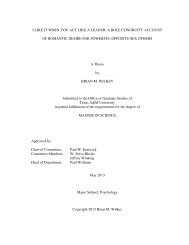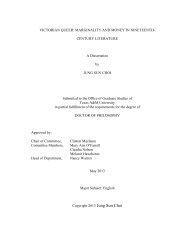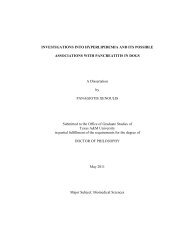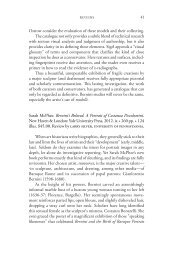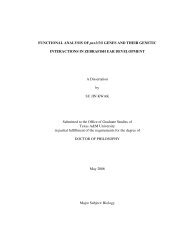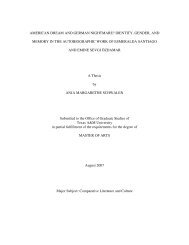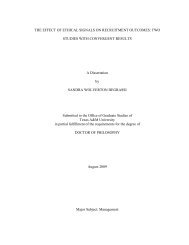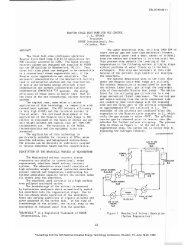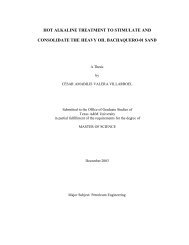A Dissertation by GRACE HUI-CHIN LIN Submitted to the Office of ...
A Dissertation by GRACE HUI-CHIN LIN Submitted to the Office of ...
A Dissertation by GRACE HUI-CHIN LIN Submitted to the Office of ...
You also want an ePaper? Increase the reach of your titles
YUMPU automatically turns print PDFs into web optimized ePapers that Google loves.
<strong>of</strong> <strong>the</strong>ir clearly marked foreigner roles, <strong>the</strong>ir need for face-saving is <strong>of</strong>ten greater than<br />
is <strong>the</strong> case with less advanced learners. Covertly used communication strategies<br />
ideally are suited for such learners” (p. 61).<br />
In this study, although <strong>the</strong> students did not particularly point out that <strong>the</strong>ir<br />
face-problem accompanied <strong>the</strong>ir use <strong>of</strong> interlanguage that caused active<br />
communication, <strong>the</strong>y designated <strong>the</strong>ir different face-saving needs related <strong>to</strong> two<br />
issues: competition in <strong>the</strong> job field and <strong>the</strong> traditional concepts in <strong>the</strong> society. The<br />
respondents pointed out that, in <strong>the</strong>ir learning experience <strong>of</strong> communication strategy,<br />
<strong>the</strong>ir face-saving problems noticeably appeared when <strong>the</strong>y were practicing <strong>the</strong><br />
abandonment strategy and cooperation strategy.<br />
Sung Ru, Jiun Sheng, and Ling Mei in this study mentioned <strong>the</strong> issues <strong>of</strong><br />
face-saving that were interrelated <strong>to</strong> <strong>the</strong> strategy application <strong>by</strong> revealing <strong>the</strong>ir<br />
psychological status. Sung Ru believed abandoning some simple words might save<br />
her from losing face. Jiun Sheng believed a male should not be appealing readily for<br />
help from o<strong>the</strong>rs. Also, Ling Mei believed a low-level pr<strong>of</strong>iciency impression can not<br />
appear in <strong>the</strong> working situation.<br />
Actually, Jiun Sheng’s perceptions about <strong>the</strong> different communication<br />
patterns between males and females are reflected in Wetzel’s (1988) and Siennicki’s<br />
(2000) findings. In Wetzel’s “Are ‘powerless’ communication strategies <strong>the</strong> Japanese<br />
norm”, she addressed that different characteristics exist between Japanese male and<br />
female communication strategies. Women tended <strong>to</strong> ask more questions, respond<br />
with more positive answers, adopt more “silent protest” strategy, and use more “we”<br />
and “you” <strong>to</strong> acknowledge <strong>the</strong> existence <strong>of</strong> <strong>the</strong> o<strong>the</strong>r speaker. In contrast, men tended<br />
<strong>to</strong> interrupt <strong>the</strong> ongoing conversation more frequently, challenge or dispute <strong>the</strong>ir<br />
184




